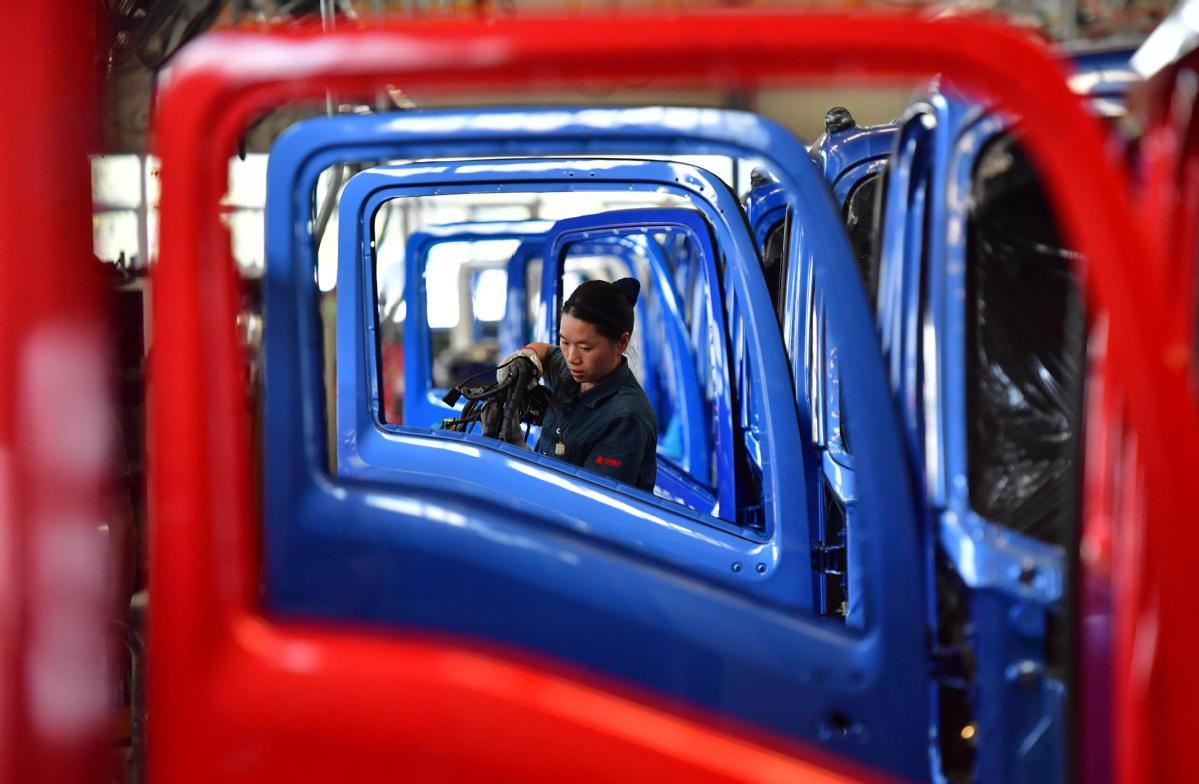
An employee works on a production line of Sinotruk Fujian Haixi Truck Co in Zhangzhou, Fujian province, on July 7. (Photo: Xinhua)
In recent months, the country's top authorities have been harping on a "dual circulation" development pattern for the Chinese economy. That is not a decision the authorities took in a hurry, but one that was arrived at after judging the circumstances at home and abroad.
Following the outbreak of the novel coronavirus, China's economy first plummeted and then managed a V-shaped rebound in the first half of this year. But the sustainability of such a recovery in the days to come is still to be seen.
Worse, the pandemic has pulled the global economy into a deep recession and catalyzed the restructuring of global supply and value chains, exacerbating people's concerns over "de-globalization", especially amid intensified efforts by the United States to push for technological decoupling with China.
By stressing on a "dual circulation" development pattern, China aims to mainly depend on "domestic circulation" for its economic development with the "international circulation" playing a supportive role. With this approach, the country will strengthen its economic development backbone and, through a series of reforms and industrial upgrading, boost its social productivity and activate its market vitality.
Laying greater emphasis on "domestic circulation" means China needs to do well in its internal affairs, give full play to its super-large domestic market, prioritize boosting domestic demand, and achieve more key technological breakthroughs to wean itself away from foreign dependence.
It, however, does not mean China intends to promote decoupling with the outside world. It also does not mean China will reject opening-up.
Trumpeting of the "domestic circulation" theory could give the false impression that China will develop better after closing the door to the outside world. However, complete dependence on "domestic circulation" will actually lead China's economy to a dead end.
Greater "domestic circulation" also does not mean simply expanding domestic demand, otherwise it would have been easy for the authorities to turn to loose monetary and credit policies to stimulate economic growth. Also, stressing on "domestic circulation" does not mean China will no longer attach importance to international economic circulation.
China has deeply integrated with the global economy thanks to the international division of labor. So China's effort to expand domestic demand is inseparable from its coordination and cooperation with the international industrial and supply chains.
Self-isolation will only widen a country's gap with advanced technologies.


